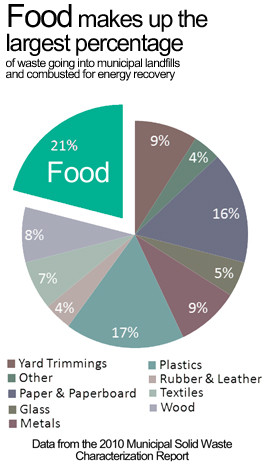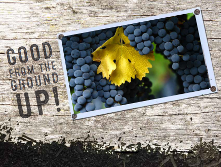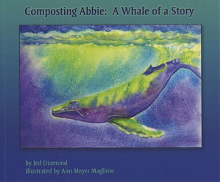Compostable Plastics are Tricky
Have you ever found yourself confused when you’re standing at a garbage can with recycling, trash, and compost compartments? We don’t blame you. Some green film plastic bags are compostable, and some are green but no more compostable than your water bottle. And to make matters even more complicated, some of those “compostable” bags are only compostable in some facilities. And some are “biodegradable” but not “compostable.” All of this is caught up in a convoluted web of regulation, environmental concerns, and practicality. For a look at the tip of the iceberg, read this article from Civil Eats. And until all of this gets sorted out, we’re all going to continue scratching our heads when we get to the green, grey, and blue carts.

Composting Food Waste
In a recent report, the EPA found that 21% of the municipal waste stream in the US is made up of food waste. That’s the largest segment of all waste types generated, greater than paper and even plastic! Luckily, the composting of food waste is a steadily growing practice in much of the developed world. India’s capital city of New Delhi has recently implemented a technological initiative to recycle its food waste. However, many California municipalities are behind the times. If India can do it, so can we! Cold Creek is working hard with local governments to develop food recycling programs in Mendocino and neighboring counties.
See the EPA report: www.epa.gov
Read more about New Delhi’s program: www.iamin.in
Image courtesy of epa.gov

 See Cold Creek's comprehensive Product Catalog for details on our products and their benefits.
See Cold Creek's comprehensive Product Catalog for details on our products and their benefits.
 Cold Creek Compost is proud to be featured in the children's book Composting Abbie, a tale of how a whale can be composted, and how a tragedy can be turned into an opportunity.
Cold Creek Compost is proud to be featured in the children's book Composting Abbie, a tale of how a whale can be composted, and how a tragedy can be turned into an opportunity.